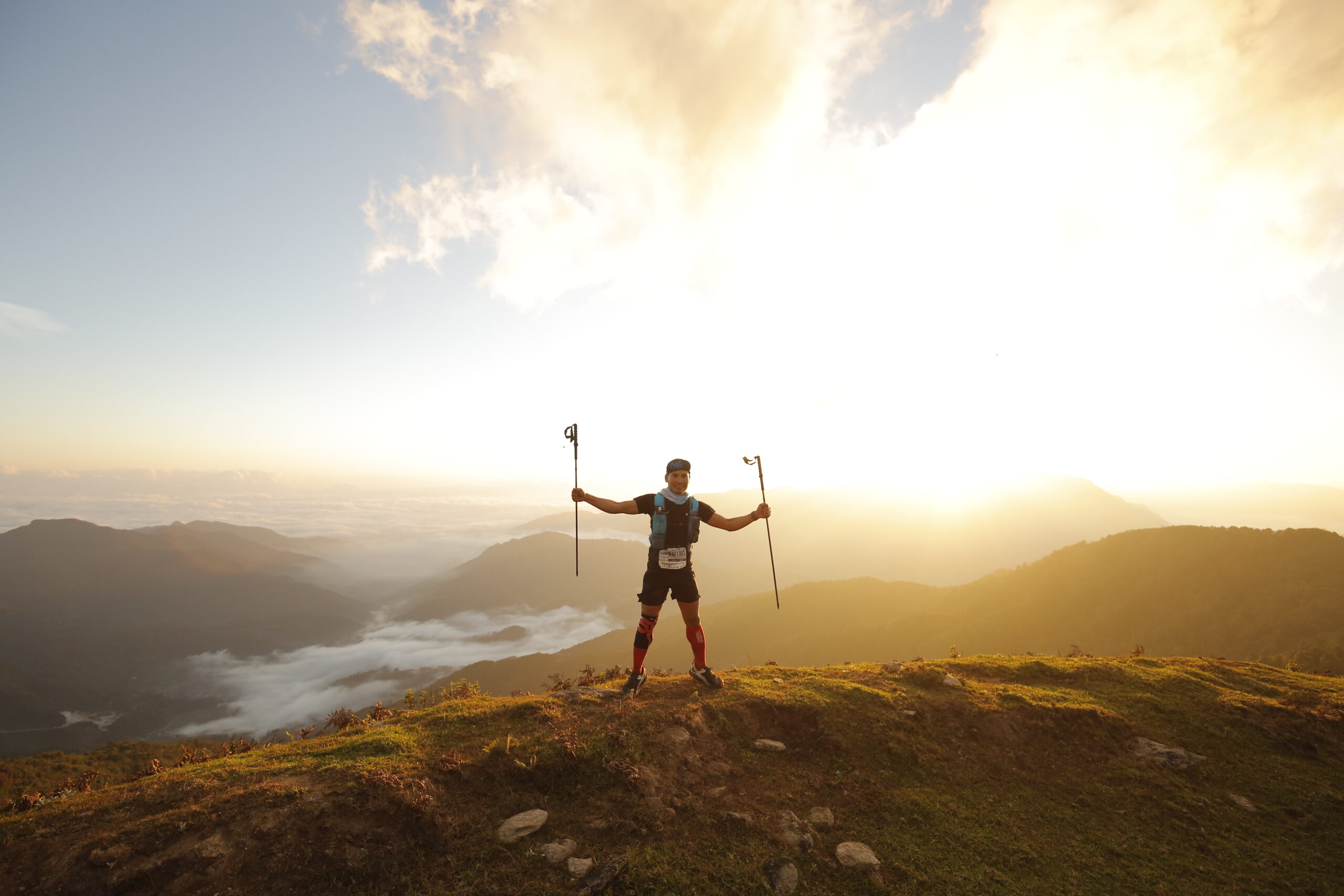- Menu
-

- Vietnam Trail Marathon
- Vietnam Ultra Marathon
- Vietnam Jungle Marathon
- Vietnam Mountain Marathon
- NEWS
-
What is a ‘responsible runner’? by Lanh Le
As a seasoned long-distance racer, Lanh Le shares his perspective on what it means to be a responsible runner: respecting nature, rules, crew and fellow runners, plus understanding the demands of your chosen distance and being well prepared for it.
This year, I will return to Sapa to participate in VMM 2024. This will be my third time joining this race in its 11-year history.
The trail running movement in Vietnam is growing stronger every day. Trail races are held all over Vietnam, attract many young people to train and compete. However, this also leads to human impacts on the natural habitats of plants, animals, and local communities.
To protect the environment, as runners, we need to respect Mother Nature by not littering, limiting the use of plastic cups and plastic water bottles. Energy bars and gel wrappers should be kept in the belt or vest after use and disposed at checkpoints where volunteers can collect them. With races involving thousands of participants, the amount of waste can add up tremendously, just by one or two improper wrapper disposals per runner.
The second point I want to discuss is following the rules set by the organizers. This includes the obligation to bring mandatory gear or wear your own bib (instead of using someone else’s).
Race organizers have a lot of experience hosting running events, so they understand the runners better than anyone. The rules they set are not meant to make things difficult for runners but to protect us during the race.
Next, we also need to respect the organizing team – they are the ones who put in a lot of effort to manage the race so we can enjoyably complete it. In long-distance running, there will be times when we feel exhausted, which might lead us to get irritated with volunteers or event organizers. But we need to be considerate about the hardships they have endured throughout the event. This also helps keep us in good spirits. For me, I always say “thank you” when leaving each checkpoint, and the crew always wish me luck.
In addition to recognizing the race crew, we must respect our fellow runners as well. All participants have their own goals and dreams when competing in a race, and if we respect them, we will also get respected by others.
Additionally, I’d like to mention the importance of training and preparing necessary gear. Before each race, I will thoroughly research the terrain, route, and weather conditions.
Choosing a suitable distance also helps my training process become more bearable. Usually, in the final weeks before a race, I focus more on uphill training and incorporate exercises to strengthen other muscle groups.
I look forward to seeing you in Sapa this autumn and experiencing a memorable race together.


